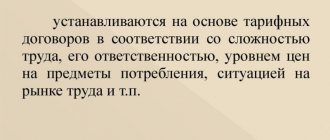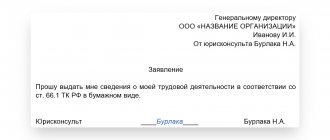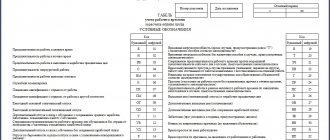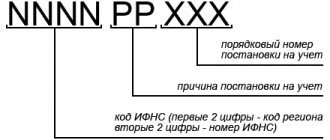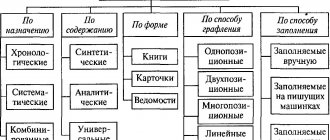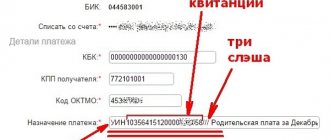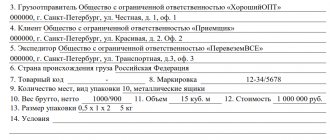What is continuous work experience?
Continuous work experience is the time during which a person worked without interruption, and the period between dismissal and taking a new job did not exceed the periods allowed by law.
It is possible to interrupt your work experience (while maintaining its “continuity”) if the reason is valid. For example, when a child is born, a woman does not actually work in the workplace, but her work experience is not interrupted if she was previously employed. This state of affairs was logical in Soviet times and legislation retained the concept of continuous service until 2006.
Continuity of service was maintained even if the employee quit and got a new job within 1 to 3 months. Also in Soviet times, there was such a thing as “freezing” seniority. For example, when leaving voluntarily, if the family moved to another area in search of work, they were given time to find a job.
In Soviet times, continuous work experience played an important role, as it directly affected the payment of sick leave and the amount of pensions.
The law was regulated by Resolution of the Council of Ministers of the USSR dated April 13, 1973 No. 252. https://youtu.be/https://www.youtube.com/watch?v=AqlG74fTjUo
Countable periods
Periods counted:
- service in the army, the Ministry of Internal Affairs, if no more than three months have passed since it;
- service, maternity pay, child care benefits for a female military personnel dismissed due to the expectation of the birth of a child, if she enters the organization, for study until the child is 1.5 years old;
- employment, paid practice of a student at a university, secondary vocational educational institution, graduate school, residency;
- studying in colleges, vocational schools, if no more than three months have passed since their graduation;
- advanced training, retraining, vocational training, if they were preceded by employment or service in the army, the Ministry of Internal Affairs;
- labor as chairman of a collective farm in the direction of party and Soviet bodies;
- absenteeism of an unfairly dismissed and reinstated employee.
What changes has the concept of “continuous service” undergone?
In 2006, the Constitutional Court of Russia revoked the above-mentioned document, and the concept of continuous work experience was recognized as inconsistent with the Constitution of the Russian Federation (Article 37). Thus, the court considered that the term “continuous work experience” violates the human right to free work.
Nowadays , there are industries where continuity of work experience is taken into account , but not to the same extent as it was before:
- The length of work experience is taken into account when calculating sick leave, but this does not always happen;
- In a number of professions, seniority plays a role in calculating supplements;
- Employers, on their own initiative, can provide benefits, payments and bonuses to those employees who work in the workplace without interruption;
- Some employers may pay attention to length of service in order to form an opinion about the employee. Naturally, the longer he works in one company, the more reliable he is. But this has nothing to do with legislation.
Receiving the title "Veteran of Labor"
For many years, the title “Veteran of Labor” has been considered a way to effectively support workers. Persons with this status can count on increased social guarantees as gratitude for years of long work.
In what cases is work experience interrupted and how to restore it ?
Honorary workers in the regions have the right to a number of benefits that make life easier and improve their financial situation. But today it is not easy to obtain such a title, even with many years of activity, since in order to recognize all the merits, documentary evidence of several conditions is necessary. They are established at the legislative level and are the reason for obtaining the title.
Firstly, a citizen applying for the title must continuously work in any industry for at least 15 years, since constant activity at any enterprise without layoffs is necessary.
Secondly, a total accumulated work experience of at least 25 years is required for men, and also 5 years less for women, including the specified 15 years.
Thirdly, a citizen must have distinctive insignia presented by the department in the form of medals, orders, titles, diplomas, as well as letters of gratitude presented by the Ministries or the President.
In total, to be awarded the “Veteran of Labor” certificate, the employee must simultaneously have sufficient experience and distinctive signs. It is known that certificates and prepared letters of gratitude are awarded to almost everyone, but the title is awarded only if there are departmental insignia.
Continuous work experience: how it is taken into account
Nowadays, what length of service is considered continuous has changed. According to the provisions of the Labor Code of the Russian Federation, this is the period during which the employee worked in the same enterprise. Not a single article of the Labor Code of the Russian Federation directly indicates this, but there is an indirect mention in Article 121 of the Labor Code of the Russian Federation.
Note that the duration of work in one company no longer affects the amount of sick leave and the amount of pension. The only advantage is allowances and benefits in a number of professional areas.
For example, teachers and medical workers receive bonuses for many years of work in their field of activity. Also, salary increases are given to those living in the Far North and equivalent regions (Order of the Ministry of Labor of the RSFSR dated November 22, 1990 No. 3):
- Arhangelsk region;
- Irkutsk region;
- Chita region;
- Republic of Karelia;
- Komi Republic;
- The Republic of Buryatia;
- Tyva Republic;
- Southern regions of the Far East and Krasnoyarsk Territory.
How to resign without interruption?
To quit your job and maintain your seniority, you need to study the grounds for maintaining your seniority. In any case, pensioners will not lose their seniority. Parents and guardians of children under 14 years of age (disabled people under 16 years of age) can also resign, care for children and maintain seniority.
Dismissal by agreement of the parties will give you two months to find a new job if you work in the northern and other regions equivalent to them due to inaccessibility. The end of a fixed-term employment contract will do the same.
It should also be taken into account that the length of service is not interrupted at all in the following cases:
- the employee entered a university or college, including a preparatory department or graduate school, residency;
- his work was transferred for a period of no more than a year to an enterprise located outside the northern regions;
- the employee was sent to work abroad, but returned to work in the northern regions two months later;
- the employee was called up for military service.
As a result, upon dismissal from one job and employment in another, the length of service is not interrupted only within the specific time frame established by Order of the Ministry of Labor of the RSFSR No. 2 of November 22, 1990. If such a break is missed, the period of service is automatically interrupted. In order to quit your current job without any problems and find a new one without losing your experience, you need to take into account the considered nuances of the labor legislation of the Russian Federation.
When can seniority be interrupted upon dismissal?
The work experience is interrupted if the employee is fired due to one of the following reasons:
- systematic failure to fulfill official duties in accordance with the contract, job description or company regulations;
- for absenteeism, which amounted to absence from the workplace for more than 4 hours;
- for appearing at work while intoxicated;
- if the employee has been convicted (imprisonment, correctional labor) and the punishment excludes the possibility of further working in the company;
- the employee committed theft at the enterprise;
- an employee performing educational functions has committed an immoral act in the workplace and can no longer continue to work there;
- management imposed a disciplinary sanction on the worker;
- other behavior of the employee, for which dismissal is due as a disciplinary measure.
When does seniority last?
Based on today’s provisions of the Labor Code of the Russian Federation, continuous length of service is the duration of an employee’s work with one employer. It is defined in days, calendar months and years. The duration and continuity of work experience is noted in the work book.
If an employee resigns, continuity of service is lost. State employees, in particular teachers and doctors, may act as an exception. If they remain working in the same structure and field, changing only the institution, the length of service is not interrupted. When calculating a salary bonus, previously worked time is taken into account.
According to the Law of the Russian Federation of April 19, 1991 No. 1032-1, the length of service is also retained in the following cases:
- time of official unemployment with benefits;
- the period of secondary and higher education for which the scholarship was paid;
- performing public works for a fee;
- moving to another city to get a job on the recommendation of the employment center;
- temporary disability with official confirmation;
- maternity leave time;
- being in military service/training;
- participation in preparatory activities for military service/alternative civil service;
- election to a position in the legislative branch, for example, as a deputy.
How many days can you miss between jobs?
Continuity can be maintained when changing jobs, but it must be subject to certain conditions.
The period of service remains the same when changing jobs.:
- up to three weeks if the employee’s dismissal was on his initiative;
- up to one month in case of dismissal on general grounds;
- up to two months if the service was carried out in the Far North or in a foreign country;
- up to three months, if the reason for dismissal was a reduction in staff, reorganization or liquidation of the enterprise, as well as in case of inability to perform official duties due to health conditions.
It should be noted that the working period is not interrupted and does not depend on the duration of the break in the following cases :
- upon retirement due to old age or long service;
- if the spouse was transferred to another duty station in another locality.
Reference! Thus, the internship period is not interrupted when changing jobs. However, you need to understand that if the dismissal was associated with absenteeism, theft, non-compliance with work duties, offenses related to discipline, in such cases the continuity of official activity is not taken into account.
How to calculate length of service using a work book?
The rules for calculating continuous work experience are quite simple. The basis for its calculation are the following documents:
- contract or work agreements;
- employment history;
- certificates from places of work;
- military ID.
When calculating, we first add up the time worked in each company, and then add up the periods if the breaks did not exceed the duration established by law (or occurred for a good reason).
What does continuous work experience affect?
Currently, continuous work experience affects 2 areas:
- when assigning salary bonuses (for medical employees and teachers);
- when calculating benefits for temporary disability, although in most cases the insurance period is used for calculation.
However, in a number of cases, if the duration of the insurance period is less than the duration of continuous work experience, the work experience can be taken to calculate benefits.
Does continuous work experience affect the size of the pension?
During the Soviet Union, continuous work experience was one of the key criteria when calculating pensions. To date, this parameter does not have a serious impact on the calculation of pensions. But there is an exception here too - if the total insurance period of a person is less than continuous work activity, then the larger value is taken as the basis for the calculation.
Thus, the term “continuous work experience” will completely disappear over time, since it has been replaced by a new concept - “insurance period”. And now the registration of a citizen in the pension insurance system plays a big role. If an employer pays insurance contributions to the Pension Fund for an employee, the citizen develops an “insurance record.”
There is currently no increase in pensions for long periods of work at one enterprise. It is more important that the salary is official, and the employer makes insurance payments from it.
Even if a person works in one company for a long period of time, but receives his salary in an envelope, the transfers to his account in the Pension Fund of the Russian Federation are too small. This means that you should not count on a decent pension.
